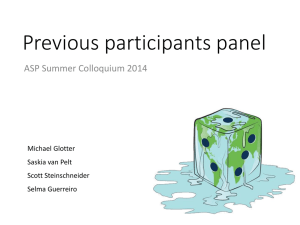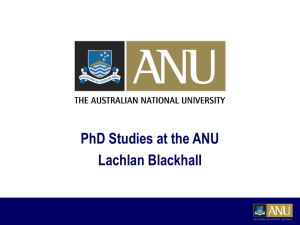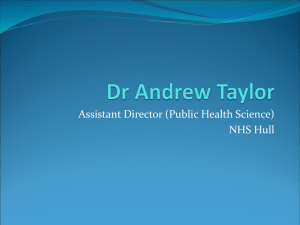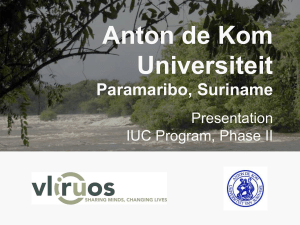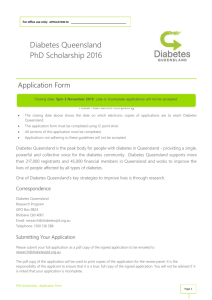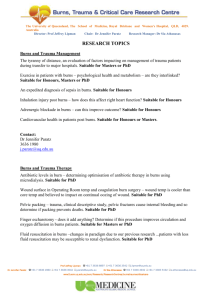(666,5 KiB) - Queensland Government
advertisement
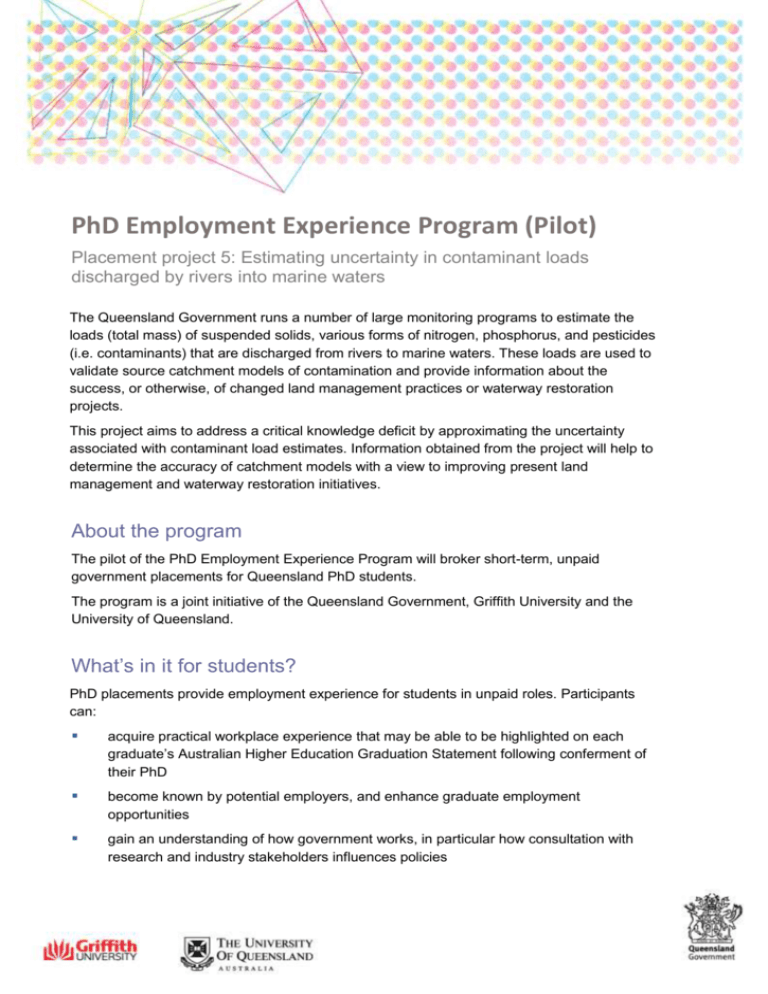
PhD Employment Experience Program (Pilot) Placement project 5: Estimating uncertainty in contaminant loads discharged by rivers into marine waters The Queensland Government runs a number of large monitoring programs to estimate the loads (total mass) of suspended solids, various forms of nitrogen, phosphorus, and pesticides (i.e. contaminants) that are discharged from rivers to marine waters. These loads are used to validate source catchment models of contamination and provide information about the success, or otherwise, of changed land management practices or waterway restoration projects. This project aims to address a critical knowledge deficit by approximating the uncertainty associated with contaminant load estimates. Information obtained from the project will help to determine the accuracy of catchment models with a view to improving present land management and waterway restoration initiatives. About the program The pilot of the PhD Employment Experience Program will broker short-term, unpaid government placements for Queensland PhD students. The program is a joint initiative of the Queensland Government, Griffith University and the University of Queensland. What’s in it for students? PhD placements provide employment experience for students in unpaid roles. Participants can: acquire practical workplace experience that may be able to be highlighted on each graduate’s Australian Higher Education Graduation Statement following conferment of their PhD become known by potential employers, and enhance graduate employment opportunities gain an understanding of how government works, in particular how consultation with research and industry stakeholders influences policies develop stronger and more commercially focused communication, planning, organisational, teamwork and problem-solving skills. What types of duties are involved? Under the supervision of the host supervisor, PhD students can: 1. analyse existing load value estimates for samples taken from source river catchments 2. use appropriate resampling techniques to determine the sensitivity of analytical methods used to estimate the load values obtained in Step 1 3. identify the key factors contributing to any measurement uncertainty observed between the load estimates from Step 1 and estimates obtained from Step 2 4. calculate the overall uncertainty to a given level of confidence for all load estimates obtained 5. prepare a report that documents the process for calculating uncertainty and details the level of uncertainty obtained for each load estimate. What is the time commitment? Each student is expected to participate for a total of 20–30 working days. The placement may be full-time or part-time as negotiated between the student and the host supervisor. What skills are required? Your suitability for this project will be assessed on how well your experience, skills and achievements relate to the following four capability areas and match the duties of the project: Research and analysis skills – Your ability to gather, investigate and synthesise information or ideas from a variety of sources. Examples include: statistical analysis; verifying authenticity and accuracy of data; understanding performance measures; managing quantitative data sets; drawing appropriate inferences; forming coherent arguments; using appropriate evaluation methods/research techniques. Organisational skills – Your ability to contribute proactively to achievement of outcomes. Examples include: monitoring progress; seeing projects through to completion; contributing own expertise to achieve the required outcomes; making effective use of team capabilities, establishing simple project plans with measurable milestones to deliver objectives. Verbal and written communication skills – Your ability to communicate clearly with a wide range of people. Examples include: presenting messages in a clear, concise manner; using appropriate language; understanding the audience and tailoring communication style and message accordingly; listening to others and checking to ensure their views have been understood; negotiating confidently. Interpersonal skills – Your ability to liaise and work with a wide range of people. Examples include: meeting new people/stakeholders; participating at meetings/events; actively listening to colleagues and clients; ensuring others are kept informed of issues; collaborating as an effective team member; seeing things from different perspectives, treating people with respect; acting on feedback. Page 2 of 3 Department of Science, Information Technology, Innovation and the Arts More information about this project Dr Michael Warne Science Leader; Water Quality and Investigations Environmental Monitoring and Assessment Science, Science Department of Science, Information Technology, Innovation and the Arts EcoSciences Precinct, 41 Boggo Road, Dutton Park Phone: 07 3170 5571 Email: Michael.Warne@science.dsitia.qld.gov.au Ryan Turner, Principal Scientist Environmental Monitoring and Assessment Science, Science Department of Science, Information Technology, Innovation and the Arts EcoSciences Precinct, 41 Boggo Road, Dutton Park Phone: 07 3170 5608 Email: ryan.turner@science.dsitia.qld.gov.au More information about the PhD Employment Experience Program See program guidelines at www.qld.gov.au/jobs/education/volunteering/pages/phdprogram.html. Page 3 of 3
